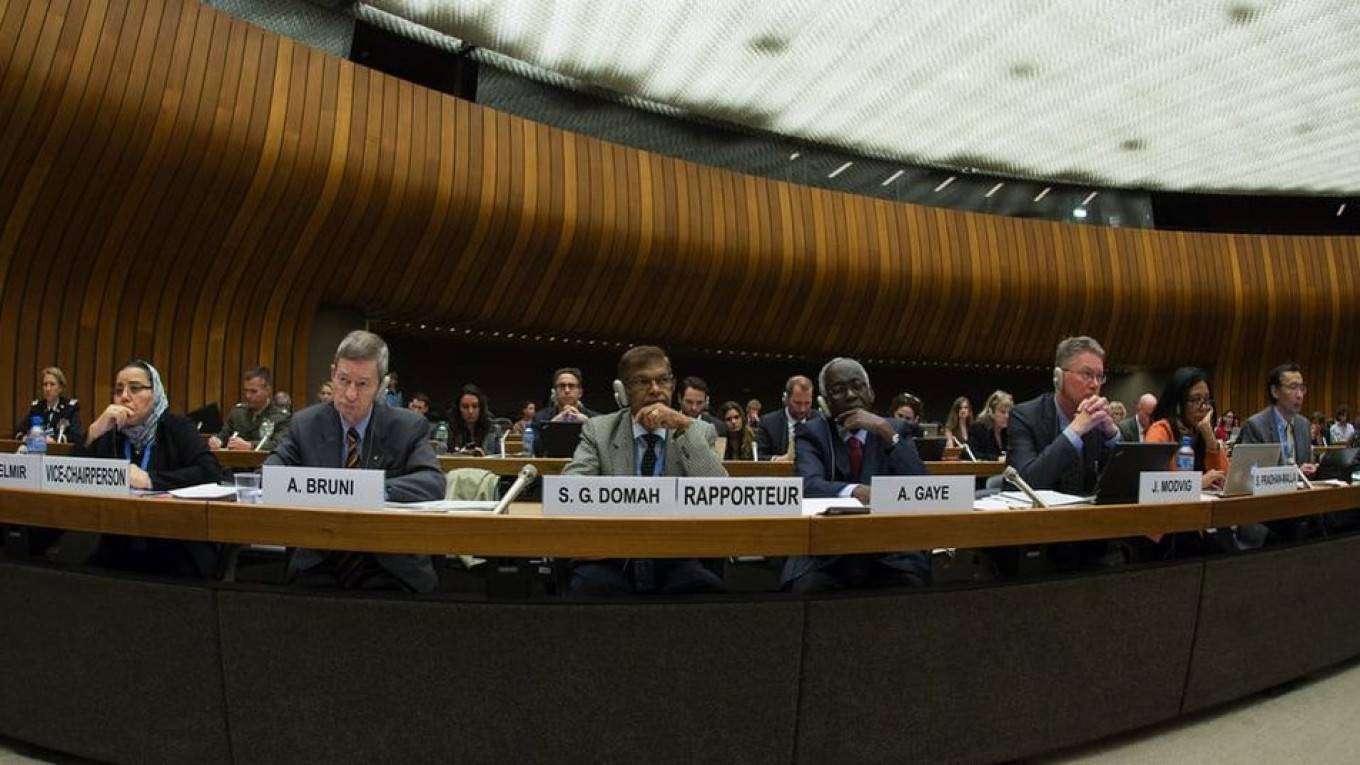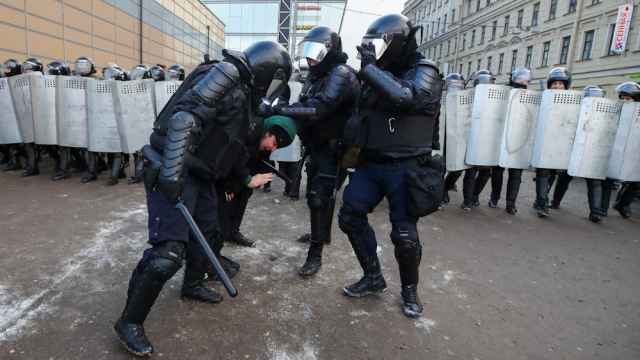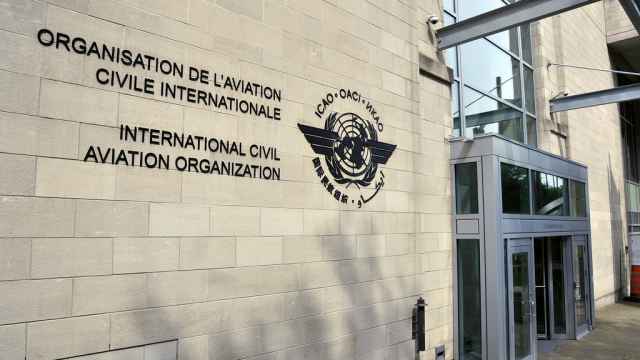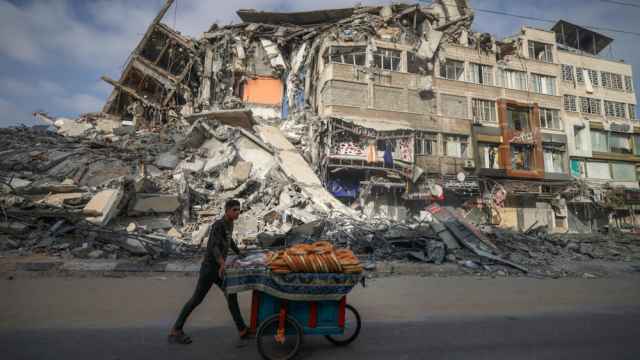Russia must halt frequent torture of detainees and prosecute perpetrators, including prison guards caught on video beating an inmate that led to a public outcry, United Nations human rights investigators said on Friday.
The UN Committee Against Torture, in a rare move, told Russian authorities to report back in a year on the emblematic case of guards beating Yevgeny Makarov with truncheons and on harassment of activists and journalists.
The Novaya Gazeta newspaper published the 10-minute clip last month and said the incident took place in June 2017 in a prison in the city of Yaroslavl, northeast of Moscow.
The panel voiced concern that in this case, "video surveillance proved to be ineffective in preventing acts of torture, that the video recording was suppressed by the officials for almost one year and that investigation was undertaken only after the video recording was leaked to media and attracted wide attention."
Russian deputy justice minister Mikhail Galperin, who led a delegation at a two-day examination of its record, said that authorities would prosecute the guards. This would become a "very clear signal on the unacceptability of torture."
Seventeen officials have been removed from their jobs in connection with the case, including five who have been arrested, while a sixth arrest is under consideration, he said.
The UN panel, composed of 10 independent experts, called on Russian authorities to protect Makarov, and his lawyer Irina Biryukova who has fled the country, against reprisals.
Russia must "combat impunity concerning torture and ill-treatment cases, including by ensuring that high-level government officials publicly and unambiguously affirm that torture will not be tolerated," it said in its conclusions.
The experts had received "consistent and numerous reports indicating the lack of prompt, impartial and effective investigation into allegations of torture or ill-treatment."
Some 600,000 people are held in nearly 1,000 prisons and detention centers across Russia, with 4,000 deaths from various causes recorded each year, "one of the highest rates in the Council of Europe countries," panel chairman Jens Modvig said during the review.
In its conclusions, the panel called on authorities to reduce the number of deaths in custody, including by suicide, and to investigate all deaths through independent forensic examinations.
Russian authorities must stop putting people involuntarily in psychiatric institutions, particularly in the annexed territory of Crimea, and halt torture of political opponents to obtain confessions, including jailed Ukrainian filmmaker Oleg Sentsov who is on a hunger strike, it said.
A Message from The Moscow Times:
Dear readers,
We are facing unprecedented challenges. Russia's Prosecutor General's Office has designated The Moscow Times as an "undesirable" organization, criminalizing our work and putting our staff at risk of prosecution. This follows our earlier unjust labeling as a "foreign agent."
These actions are direct attempts to silence independent journalism in Russia. The authorities claim our work "discredits the decisions of the Russian leadership." We see things differently: we strive to provide accurate, unbiased reporting on Russia.
We, the journalists of The Moscow Times, refuse to be silenced. But to continue our work, we need your help.
Your support, no matter how small, makes a world of difference. If you can, please support us monthly starting from just $2. It's quick to set up, and every contribution makes a significant impact.
By supporting The Moscow Times, you're defending open, independent journalism in the face of repression. Thank you for standing with us.
Remind me later.







